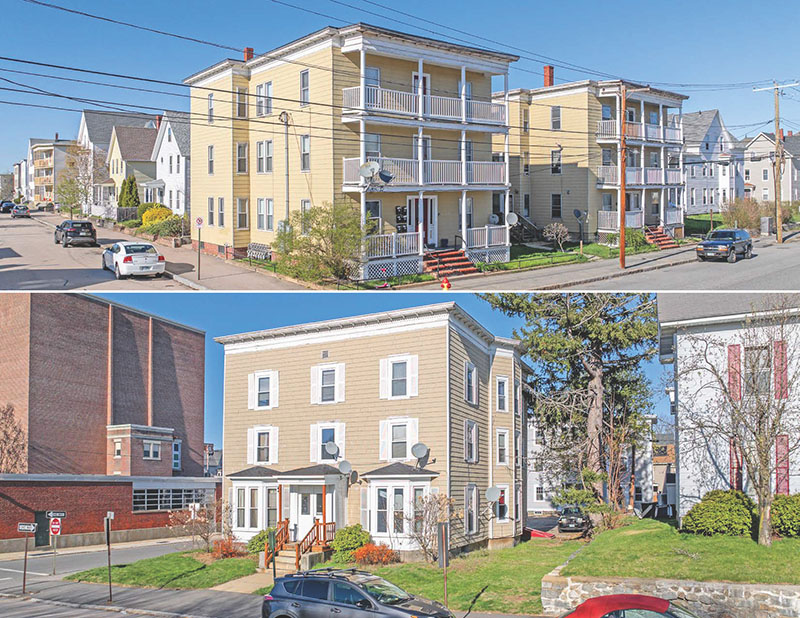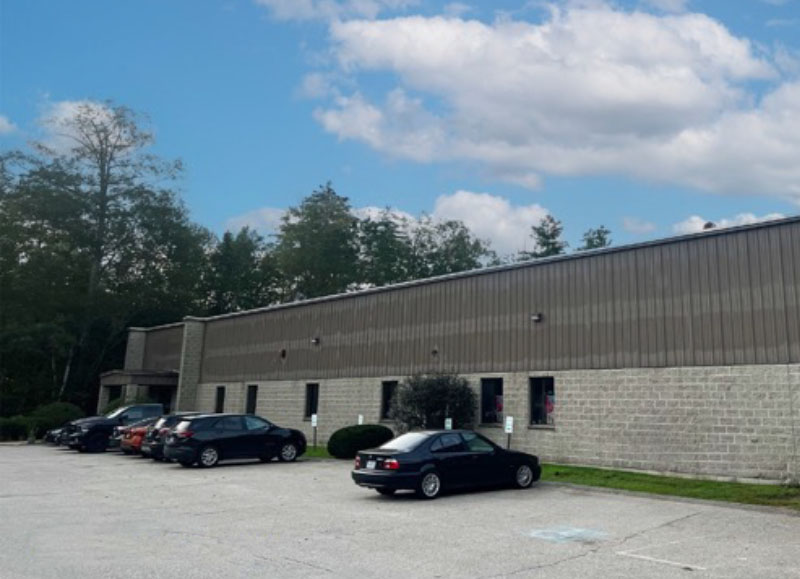NH CIBOR president’s message: What are New Hampshire banks planning for the year? - by Matthew Bacon

As I was writing my last president’s message, I couldn’t help but think “Are we going to find out what the current administration considers ‘too big to fail’?” Following the 2007-2008 financial crisis, there were several unprecedented moves made by the Federal Reserve and banking regulators. With the run on several banks, and the resulting failure of Silicon Valley Bank, Silvergate Bank, and Signature Bank, several concerns swept over the finance markets and commercial real estate industry in particular. While that turmoil has mostly blown over and our bankers here don’t predict disaster in the northeast, it’s interesting to see what some local banks are planning for the remainder of this year.
To provide some expert insight on this, I consulted with Frank Teas, president and CEO of Millyard Bank, and Bill Stone, president and CEO of Primary Bank. Both are locally founded and run right here in New Hampshire, and both have sprouted since 2008.
Asking Frank Teas for some specific New Hampshire-focused insight, I asked “Given the recent failures in a couple of banks and some fears that it could affect commercial real estate lending, what would you expect to see in our local market in the coming year or so? Do you expect a substantial tightening in commercial real estate lending or availability?”
Frank shared “I’ll give you three bullet points to sum that up for you:
1. First of all, New Hampshire’s banking system is a traditional one, with largely local deposits providing the basis for loans on quality commercial real estate and businesses operating in the local market. This is in contrast to the failed banks, which were heavily exposed to non-traditional influences.
2. More than ever before, quality of deposits is critical, because local deposits fuel local lending, and sustain the strength of those banks.
3. According to industry statistics, New Hampshire and New England area banks have strong capital and are positioned to continue to lend money and succeed.”
In general, the commercial real estate industry is holding up very well in New England, while some are growing slightly more cautious in case of a correction or recession. But New Hampshire has been largely insulated from a lot of the concerns experienced elsewhere. Unemployment remains very low, and the business community outlook is still very strong. The economy here hasn’t been impacted as strongly yet.
Inflation is coming down slowly, and we’re anticipating another .25% next meeting, but that’s already factored into the market. The banking industry saw a significant run-off across the country as people withdrew some deposits to take advantage of better rates, but not to a level that causes destabilization. A bit more scrutiny is being used in underwriting so that banks and businesses don’t overextend as the environment shifts.
With Frank’s insights on New Hampshire and New England in mind, and a few questions prepared for Bill Stone, I got to dive more into the specific factors that affected the west coast banks in particular, and how he sees that contrast with the local outlook.
Matt: Last month, there was a lot of concern for a few days in several sectors of the economy and banking, and many of us in commercial real estate were wondering what long-term influences we might see. Can you tell me what you were telling your bank’s investors and large clients in development and investment commercial real estate during that time period as Silicon Valley Bank and Signature Bank were going down?
Bill: Regarding Silicon Valley Bank, they were very different from most banks, just look at their balance sheet to see more about why. They had grown a lot, and very quickly. About 60% of their bank’s assets were liquid at one point, and they bought a lot of low-rate securities like treasuries. Values plummeted as rates spiked. In the long run, the bank would have been fine if held to maturity.
Meanwhile, Primary Bank has taken almost all of its liquidity, and put it back into loans in our business marketplace. The majority of banks in New England do that as well, and therefore don’t have this type of exposure to investment securities risk.
Signature was a highly unique bank, in that it had so much exposure to cryptocurrency, which our banks up here in New England don’t share either. A funny thing is that Barney Frank was a board member, but a guy that put a lot of regulations in place following the crisis in 2008.
Matt: You mentioned that the exposure to Silicon Valley Bank and Signature was unique, and not shared by many of the big banks and even regionals like we have so many of in New England, so why did central banks and regulators have such a reaction as it appears they did?
Bill: The banking industry itself is very solid, but banks need deposits to do lending, so there’s concern when masses are taking them out. Small businesses need access to capital and could dramatically curtail lending ability in that space.
Matt: Do you see long term issues with the new program, or do you think it just provided an option to sustain public confidence?
Bill: Of our $700 million in assets, we have less than $10 million in investments, so we will not be utilizing the new program. I think it was really just there to provide confidence for people in the marketplace, so I don’t really have a good answer there because I don’t know how it’s used and how many are really using it.
Matt: How does this compare to the TARP program put in place back in 2008?
Bill: I think many of the bigger banks were heavily encouraged to the point of it almost being pushed on them to participate in TARP. At the time, the bank I was with didn’t participate, so I don’t know how it would compare either, except I think it was really an effort to restore confidence and tell people that action was being taken. And a parting thought - there’s a little slower movement in some lending because people are taking a second look at things and making careful decisions because of the cost of capital vs more recent years.
Matthew Bacon is the 2023 president of the N.H. Commercial Investment Board of Realtors, Bedford and is a senior advisor at Anagnost Realty & Development, Manchester, N.H.
PROCON and Hitchiner break ground on 57,000 s/f shared services operations facility








